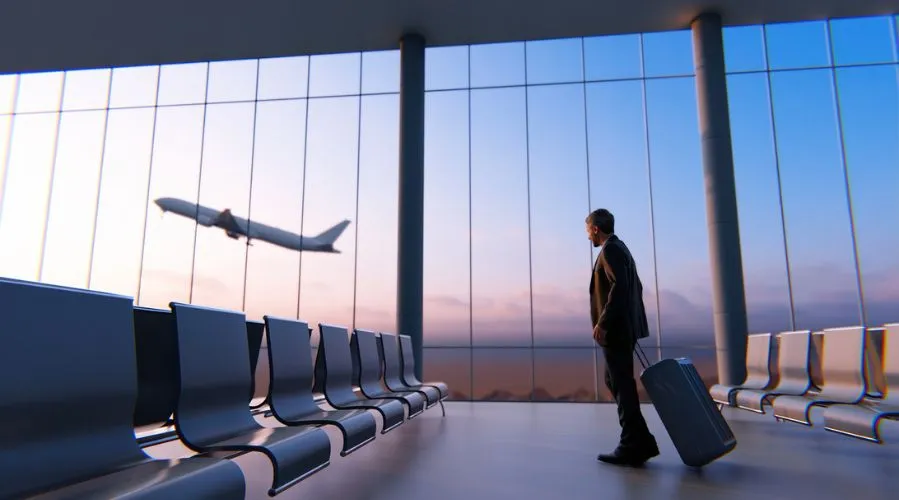Ready to discover Austria? Whether it's skiing in the Tyrolean mountains, marvelling at the architecture, music, and history of Vienna, trekking around Zeller See, continuing your dissertation research in Salzburg, or attending a Banking and Finance class at Graz University, Austria has something for everyone.
Whatever your reasons to take on such an exciting trip, you might need a visa to be allowed in the country.
Don’t panic! We’ll guide you through every step of the Austrian visa process. Just follow our lead!
- Do you need a visa to visit Austria?
- What type of visa do you need to travel to Austria?
- Where should you apply for your Austrian visa?
- When should you apply for your visa for Austria?
- How much does a visa for Austria cost?
- The different steps of the Schengen visa application process.
- What documents must be enclosed with your visa application?
- Why choose AXA Schengen visa insurance?
Do you need a visa to visit Austria?
Austria is part of the Schengen area and thus applies the European Union’s common policies regarding short- stay visas (less than 90 days).
Travellers who do NOT require a visa to visit Austria
- Citizens (or family members living with a citizen) of a Schengen state or of the European Union.
- Citizens of third-countries who hold a valid residence permit issued by a Schengen country.
- Citizens of third-countries, which have signed a visa waiver agreement with the European Union.
Beware! Even if you don’t need a visa to visit Austria, you still need to comply with a few requirements:
- You need to present a valid passport, issued within the last 10 years and expiring at least 3 months after your scheduled exit date from the Schengen area.
- Starting mid-2025, you will need to fill out an ETIAS form (European Travel Information and Authorization System) to enter the Schengen area.
- Your stay must not exceed 90 days over a 180-day period.
Important! Citizens of the European Union and of visa-free countries must be able to present upon request from Austrian authorities:
- A valid ID document.
- Proof of their financial means of subsistence during their stay in Austria.
- Justification for the purpose of their trip.
Travellers who need a visa to visit Austria
If you do not belong to one of the three categories above, you will need to apply for a visa to discover the treasures of Austria.
If you are unsure whether you need a visa or not, check the list of countries whose citizens are subject to Schengen visa obligations.
What type of visa should you apply for to travel to Austria?
For stays shorter than 3 months, the most common visa is the short-stay type-C visa (also called the Schengen visa or the Uniform Visa), issued for the most frequent travel purposes: tourism, business, visits to family or friends, short trainings and internships, participation in events such as trade fairs, exhibitions, shows, sports or cultural events.
It allows its holders to travel and stay in all the countries of the Schengen area for a maximum of 90 days over a 180-day period.
The Schengen visa is also called the Uniform Visa because its attribution criteria and the rights it gives are the same whatever the country where the application was submitted and the visa issued.
Note: The Schengen visa does not allow its holder to engage in remunerated activities in Austria, even temporarily. For this, you must apply for a gainful employment visa.
For stays longer than 3 months in Austria, you need a type-D long stay visa.
Several type- D visas exist and they are granted according to your situation (studies, work, etc.). Their attribution criteria and the rights they grant are not standardized at a European level but are specific to Austria.
Where should you apply for an Austrian visa?
Your visa application must be submitted at the Austrian embassy or consular of your country of residence.
Please note: Austria does not have diplomatic representation everywhere in the World. In a few countries, it is represented by other Schengen states. You will have to submit your visa application to the consular services of these countries.
When should you apply for your visa for Austria?
Your Schengen visa application must be submitted 6 months at the earliest and 15 days at the latest before your scheduled departure date.
The usual processing time is 15 days but can reach up to 45 days if specific verifications are required and during busy times of the year (such as summer, the end of year Holidays, etc.) Furthermore, bear in mind that availabilities for your appointment to submit your application can be limited and that you might not find an opening as early as you expected.
Take those possible mishaps into consideration when organising your trip.
We thus recommend you submit your visa application as early as possible and no later than 6 to 8 weeks before your scheduled date of departure. The sooner the safer!
How much does a visa for Austria cost?
Visa fees depend on the age and situation of the traveller. Children under age 6 for example, are exempt from visa fees as are other categories of travellers.
Costs for a visa for Austria include:
- The visa fee itself,
- Additional service fees, if you submit your application through an external service provider.
Beware! Visa and service fees are non-refundable even if your visa application is denied or if you withdraw your demand.
You can find more information by reading our article on the costs of a Schengen visa.
The different steps of the Schengen visa application process
1. Determine which type of visa you need to apply for, depending on the purpose of your trip.
2. Check that your passport is valid and meets the visa application requirements:
- Issued in the last 10 years.
- Valid at least 3 months after the end- date of your trip.
- With 2 blank pages.
3. Determine where you must submit your visa application.
4. Download the visa application form and fill it out carefully.
5. Book your appointment to submit your application file.
6. Subscribe to compulsory travel insurance.
7. Prepare the required documents.
8. Attend your appointment in person to hand in your visa application file.
Don’t forget:
- Your appointment notification.
- Your passport.
- Your application form: filled out, printed, dated and signed by hand.
- All the required documents (originals and copies).
- Means of payment to settle the visa fees (and service fees if applicable.)
9. During your appointment, an agent will:
- check that your file is complete and that the required documents meet the application requirements (they will make copies).
- collect your biometric data (photo and fingerprints). Children under age 12 are exempt but they do need to be present at the appointment.
- collect the visa fees (and service fees if applicable).
- keep your passport.
10. Once your application has been examined and processed, you will receive a text and/or email inviting you to recover your passport.
If your visa is granted, you will find a visa sticker in your passport.
If it is denied, you will be given a document stating the reasons for the refusal as well as your possible course of action.
What documents must be enclosed with your visa application?
Some documents are mandatory for all applicants:
- The visa application form
- A valid passport
- A recent ID photo, ICAO format.
- A Travel insurance certificate.
The European Union imposes Schengen visa applicants to subscribe to travel insurance, meant to cover the medical expenses a traveller can face in case of accident or illness. This visa travel insurance must absolutely meet the criteria set by the EU’s Visa Code.
Find out all you need to know about compulsory travel insurance.
Depending on your situation, other supporting documents could be required such as:
- Proof of the purpose of your trip.
- Proof of your accommodation arrangements in Austria.
- Proof of your means of subsistence during your stay.
- Proof of your intention of leaving the Schengen area at the end of your trip.
Want to know more? Check out our article on the documents you’ll need for your visa application—it’s packed with all the details you’re looking for!
The consular or visa services where you must submit your application will provide a precise list of the documents you need to enclose depending on your specific situation.
Please note: With your visa application, you must provide proof that you have the means to finance your needs during your trip. If that is not the case, the person, company or organisation which is inviting you to Austria will need to sign an electronic declaration of commitment (called EVE), usually at their local police station, stating that they agree to cover all your financial needs during your stay. The identity and financial situation of the inviting party will be checked. After validation, an 8-digit identification number will be issued which must be enclosed with your visa application file.
Why choose AXA Schengen visa insurance?
AXA Schengen travel insurance is strictly in compliance with the European Union requirements to obtain a visa. It is certified and is thus systematically accepted by the consular services of all the Schengen countries with visa applications.
It offers many other advantages:
- Subscription is easily and quickly carried out online. Your mandatory travel insurance certificate is automatically sent by email after your payment. You can thus enclose it immediately with your application file.
- It offers comprehensive coverage at an affordable price.
- It is refundable if the visa application is denied (official document stating the refusal required).
- No deductible applies.
- It offers 24/7 medical teleconsultation and assistance.
- It covers medical expenses (consultations, surgical acts, prescriptions, medical tests), emergency hospitalisation, search and rescue in case of accidents and repatriation.
- Its three different options - Low Cost, Europe Travel and Multi Trip- fit all needs and budgets. Feel free to compare them to find which one is the most suited to your situation.
- Enjoy particularly attractive offers, completely secured means of payment and an effortless online procedure.
Quick and easy: Get your free Schengen travel insurance quote now!
You might find these articles interesting:
- How to get the right travel insurance for Austria?
- Christmas and New Year’s traditions in Europe
- Public holidays in Europe
FAQ
Is it easy to obtain a visa for Austria?
For stays shorter than 3 months, Austria applies the European common policy regarding visas and thus visa applications are examined following the same criteria as in the other Schengen countries. However, the appreciation of these criteria remains the decision of each state. In 2023, Austria refused 14.3% of visa applications, when the average refusal rate in the Schengen area is 16%. It can thus be considered easier to obtain a Schengen visa in Austria.
What can I do if my visa application for Austria is denied?
If your visa application is denied, you will receive a written notification stating the reasons for the refusal and the recourses at your disposal. If the reason is a matter of form - your application was denied because of a missing or inadequate document for example- you can submit a new, more complete application. If your visa application was refused because of content, you can appeal to the Federal Administrative Court.
Find out more on how to avoid your Schengen visa application being denied.
Can I travel to Germany with a Schengen visa for Austria?
Yes, you can. A Schengen visa allows you to travel and stay in all the Schengen countries (including Germany) in the 90 days over 180-day period.
AXA already looks after millions of people around the world
With our travel insurance we can take great care of you too
AXA Schengen's Travel Insurances

AXA Schengen Low Cost
AXA Schengen Low Cost is perfect to obtain your Schengen visa. This travel insurance meets all the requirements demanded, covers you in all the countries of the Schengen Area as well as 4 European microstates (Andorra, Vatican City, Monaco and San Marino).

AXA Schengen Europe Travel
AXA Europe Travel is perfect to obtain your Schengen visa. It provides coverage in the Schengen countries + the European microstates + all the EU countries including UK. And you get additional guarantees compared to AXA Schengen Low Cost.

AXA Schengen Multi Trip
AXA Multi Trip is perfect to obtain your Schengen visa. This annual travel insurance is ideal for those who often travel to Europe as well as multiple-entry Schengen visa holders. You get the same guarantees as AXA Schengen Multi Trip for different countries during 90 days.


